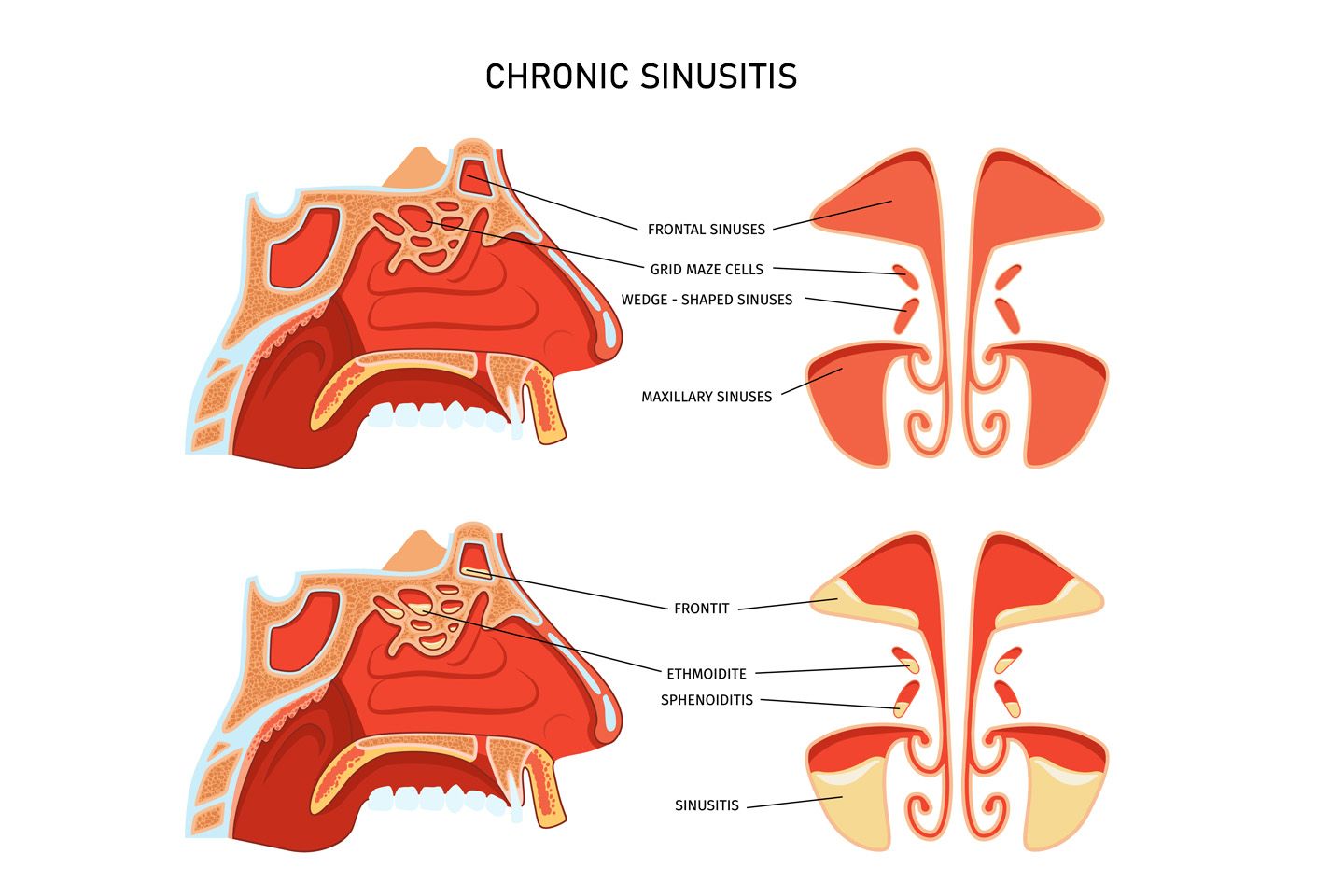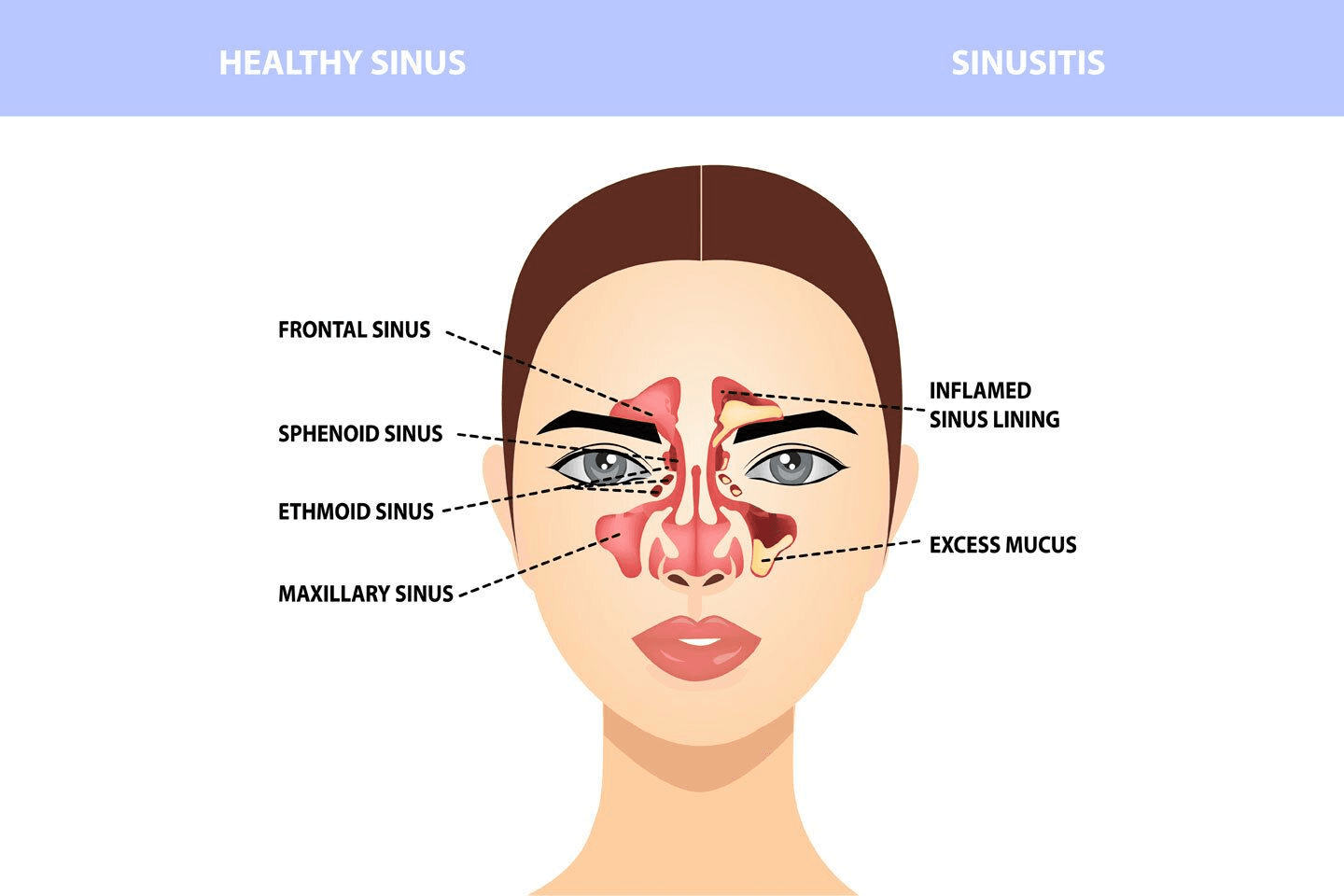
Everything You Should Know About Chronic Sinusitis
Introduction
When you have chronic sinusitis, swelling, and mucus build-up cause the tissues inside your sinuses to enlarge and get clogged for an extended period. In contrast to chronic sinusitis, which can endure for months, acute sinusitis lasts only briefly—usually a week. Chronic sinusitis is defined as having symptoms for at least 12 weeks. A cold is the most common cause of acute sinusitis; however, chronic sinusitis can be caused by various factors like allergies, asthma or bronchitis, nasal polyps, structural issues of the nose, and bacterial and viral infections.
You should anticipate having your sinuses thoroughly examined when you visit the doctor. Your symptom history can help with diagnosis, along with physical exams through an endoscope. The doctor may also want to check for any structural issues within the nose, so they may use a CT or MRI scan. You may also be asked to undertake an allergy test, and the doctor might want to study samples of your nasal and sinus discharge cultures.
Chronic Sinusitis Symptoms
You may experience any of these chronic sinusitis symptoms:
- Having difficulty smelling or tasting food and beverages.
- Mucus that is either yellow or green flowing from your nose
- Your nasal passages are clogged with dry or hardened mucus.
- A backflow of mucus in your throat (postnasal drip).
- Tenderness in your face, particularly around your eyes, forehead, and cheeks.
- Being tired.
- Having bad breath.
- You may even have a toothache, earache, or headache
Chronic sinusitis symptoms can be persistent and a nuisance, so experiencing this condition may affect your quality of life. Dark circles under your eyes and difficulty sleeping at night are both likely.
Chronic Sinusitis Treatment
Chronic sinusitis can be treated in several different ways. Some can be done at home for temporary relief. Others will assist in treating the primary reason behind your sinusitis. At-home chronic sinusitis treatment can be as simple as:
- Quit smoking or exposing yourself to second-hand smoke.
- Ensure you avoid allergens like dander, dust, pollen, and smoke.
- If you live in an area with high pollution, invest in an air purifier.
- Use a humidifier to moisten the air you breathe within your home.
- Use a saline solution to clear your nasal passages.
- Regularly inhale steam from hot water to keep nasal pathways clear.
If these steps are ineffective, then the doctor might recommend the following:
- Medication: Depending on the underlying cause, the doctor may prescribe you antibiotics, anti-fungal, or allergy medications. You will be encouraged to use nasal sprays and solutions to clear the nasal passageways.
- Immunotherapy: Immunotherapy is the next option if your allergies are not subsiding with oral medication. Allergy shots can help reduce your body’s reaction to the allergens causing chronic sinusitis symptoms.
- Surgery: It is not unusual to get chronic sinusitis surgery because it has a significant success rate. It is usually done laparoscopically, so there’s minimal scarring and bleeding and a quick recovery. The recurrence of sinusitis symptoms is also relatively low.
Noszel absorbable nasal packing is available from Meril Life for patients undergoing chronic sinusitis surgery or any other nasal procedure. Noszel is designed to promote healing, keep the wound moist, reduce the chances of oedema, and inhibit adhesion formation. It is made of a gelatin-based sponge that fully dissolves in 3–4 weeks, leaving no residue or encapsulation. Noszel binds to the bleeding spot and can absorb almost 45 times its weight.
Final Note
Depending on the source, your chronic sinusitis symptoms may never be wholly resolved. You might need long-term treatment to prevent your symptoms from interfering with your daily life. Yet, in many circumstances, your symptoms can be managed with home remedies, over-the-counter drugs, and a treatment plan devised with your doctor to tackle the causes. If it fails, chronic sinusitis surgery is always an option.



